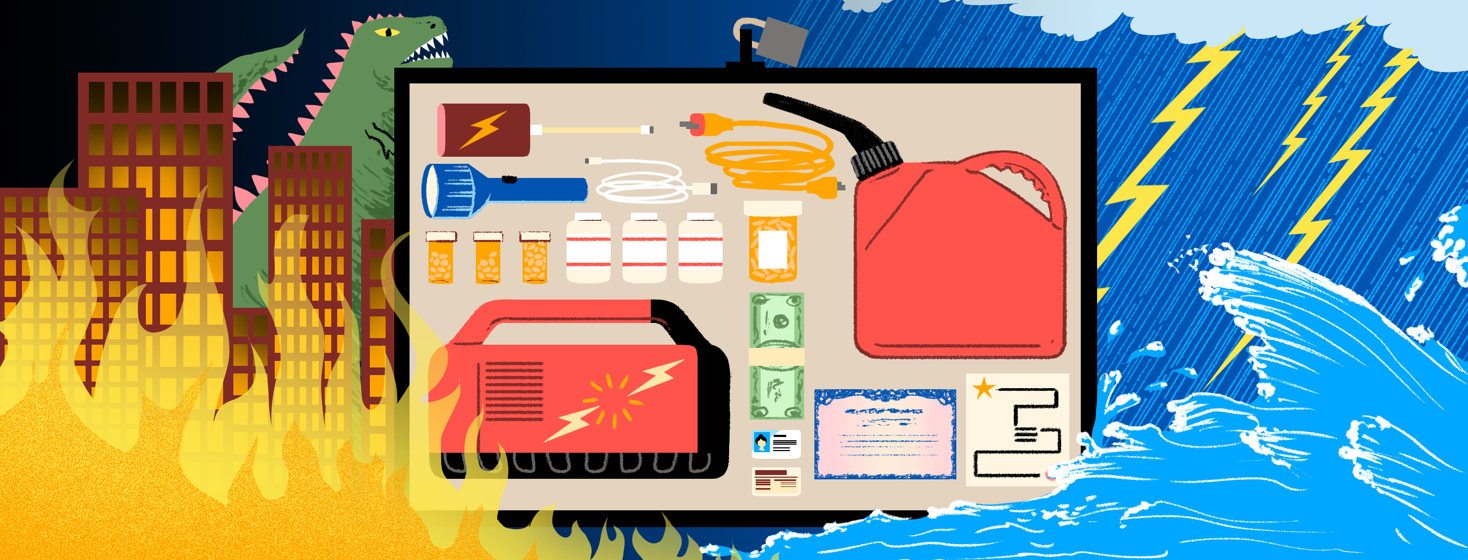Surviving Hurricanes When You Have Lupus
Outside my window, an angry brown river raged down what was once a road. The flood stormed over the 3-foot-high concrete barrier separating the street from the sidewalk. Tree branches dipped below the water, surfacing halfway down the street seconds later. A child’s toy bobbed along. Rain pounded against the grass, blown sideways by gale-force winds, as it had for the past 3 days. As a native Texan, I’d survived hurricanes before, but nothing like Harvey in 2017.
Surviving a hurricane or natural disaster can be terrifying, traumatizing, and emotionally and physically draining for anyone. But surviving a hurricane while chronically ill or disabled is even more difficult. Many of the choices healthy people make to keep themselves safe aren’t an option for disabled people.
Take evacuating, for example. My brother, who is healthy and able-bodied, once spent 23 hours straight trapped in traffic trying to escape Hurricane Rita, only to barely make it past the Houston city limits. As someone who struggles with daily chronic fatigue, insomnia, and life-threatening flares triggered by overexertion and lack of rest, I know that sitting in traffic for days nonstop is more dangerous for me than riding out of the storm at home. Evacuation has never been an option for me, as it isn’t for many disabled people – especially the mobility-impaired.
Tips for surviving a hurricane with lupus
In the years I’ve spent surviving hurricanes, I’ve learned that making it through a natural disaster isn’t necessarily about the choices you make while the storm is raging around you. It’s about the way you prepare when the sky is blue and without a cloud in sight. Here are some tips to help you prepare for this hurricane season:
Find high ground and live in a low flood zone
After Hurricane Harvey, realtors in Houston liked to say that buyers in Texas looked not for location, location, location, but elevation, elevation, elevation. Before buying a house or signing a lease on an apartment, look up the flood zone on realtor.com or the FEMA website. X-Z are generally safe flood zones that rarely, if ever, flood. If you’ve always dreamt of living near the ocean, remember that the ocean is far less relaxing when it’s seeping under your front door. You can always visit the beach.
Have a plan in case your home floods
Sometimes even the safest zones flood. In case your home floods, have a plan. Keep the number for the National Guard handy. Keep the name and contact information of a friend or family member with a tall vehicle or a boat who can help you.
Have a plan if you need to go to the hospital
Pack a hospital bag with a change of clothes, your cell phone charger, and your medication. Know the name of the closest hospital. If you feel you might need to go to the hospital, call 911 sooner rather than later. Because of high demand and flooded roads, it will almost certainly take EMTs longer than usual to reach you.
Know where in your house to shelter if there is a tornado
As if you haven’t survived enough, tornados often follow severe hurricanes. In case of a tornado warning, find a place as far into the interior of your home that you can. Hallways with no windows work, as do bathrooms. Stay away from any windows.
Have an emergency preparedness kit
The days before a hurricane mean crowded grocery stores and bare shelves. Prepare at the beginning of hurricane season by collecting the following:
- Water gallon or single-use bottles for drinking, bathing, and flushing
- Food, like granola bars or peanut butter, that last a long time and don’t need to be refrigerated
- Extra medication
- A first aid kit
- Personal hygiene and sanitation items
- Candles and flashlights with extra batteries
- Extra cell phone battery
- Battery-operated radio
- Life vests for yourself and for your children or pets
- Poncho or raincoat
Living through a hurricane is never fun. But you can make it through safe and dry with a lot of preparedness and a little luck.

Join the conversation